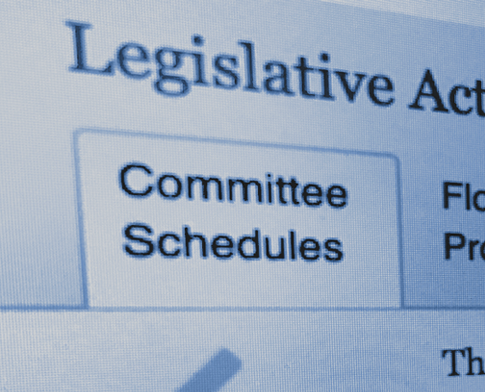Tax Update (March 23)
Senate Begins Work on “Phase 3” of COVID-19 Economic Stimulus
On Thursday (Mar. 19), Senate Finance Committee Chairman Chuck Grassley (R-IA) released the text of the Senate’s recommended tax policies for ‘Phase 3’ of the coronavirus economic impact congressional response. Highlights of the package include: recovery checks of up to $1,200 for qualified taxpayers; an extension of tax filing deadlines; $300 billion in small business loans; and $200 billion in financial support for the airline industry. A number of other individual and business tax provisions are included to help increase cash flow.
“These recommendations would blunt the impact for most Americans and limit the damage to the U.S. economy. We can contain this deadly virus without destroying livelihoods or the nation’s economy.” Grassley said of the package.
The package is cosponsored by Senate Majority Whip John Thune (R-SD) and Sens. Tim Scott (R-SC), Rob Portman (R-OH) and Mitt Romney (R-UT).
Senate Minority Leader Chuck Schumer (D-NY) has criticized the GOP proposal as being a bailout for large corporations. “We don’t want these industries to go under, but we don’t want the dollars that are put there to go to corporate executives or shareholders,” Schumer said.[1]
Senate Democrats have released a competing $750 billion proposal that would expand family leave, paid sick leave, and unemployment insurance. Schumer is also hoping to limit stock buybacks and prevent companies who have laid off employees from receiving government assistance.
Senate Majority Leader Mitch McConnell hopes to bring the package to a vote by Monday (Mar. 23), but will need the full support of his caucus and seven Democrats – a total of 60 votes – to send the measure to the House. It is unclear at the moment whether McConnell has the votes at this time.
Recovery Rebate Checks: Under Grassley’s proposal, most American taxpayers would receive a check of up to $1,200. Married couples who file jointly are eligible for up to $2,400 and amounts will increase by $500 for each child. The payments will be tiered based on an individual’s taxable income, and will begin to phase out when at a certain adjusted gross income ($75,000 for single filers and $150,000 for joint filers). Amounts will be based upon a taxpayer’s 2018 tax return.
While the cash payments are being pushed for by both President Donald Trump and Treasury Secretary Steven Mnuchin, several GOP members are taking issue with this component. Sen. Lindsey Graham (R-SC) has been outspoken in his opposition to the cash payments. Graham is instead advocating for improving unemployment insurance and providing small business loans, ideas that have been echoed by other Senate Republicans.
“I personally think if we’re going help people we ought to direct the cash payments maybe as a supplement to unemployment, not to the people that are still working everyday,” Senator Richard Shelby (R-AL) said. “Just a blanket cash check to everyone in America who is making $75,000 … I don’t know the logic of that. I could see tying it to unemployment, maybe boosting it for people who are going be laid off for a while.”[2]
Tax Filing Deadline Extension: The proposal extends the April 15th filing date to July 15th. Additionally, the proposal will allow individuals and businesses to postpone estimated tax payments due from the date of enactment until October 15, 2020. There is no cap on the amount of tax payments postponed.
Individual Tax Provisions:
- Retirement fund flexibility: Provision waves the 10-percent early withdrawal penalty for up to $100,000 from qualified retirement accounts for coronavirus-related purposes when someone: 1) is diagnosed with COVID-19 2) (2) whose spouse or dependent is diagnosed with COVID-19, or (3) is furloughed, laid off, having work hours reduced, or other factors as determined by the Treasury Secretary.
- Deduction for charitable donations: Provision permits individuals to deduct up to $300 in charitable donations regardless of whether they itemize their taxes, and suspends certain limitations on charitable donations.
Business Tax Provisions:
- Postpone tax payments: Provision allows businesses to delay
- Delay of payment for employer payroll taxes: Provisions allows employers and self-employed individuals to defer payment of the employer share of the Social Security tax.
- Modifications for net operating losses: Provision relaxes the limitations on a company’s use of losses from prior years. NOLs are currently subject to a taxable income limitation, and they cannot be carried back to reduce income in a prior tax year.
- Modification of limitation on losses for taxpayers other than corporations: Provision modifies the loss limitation applicable to pass-through businesses and sole proprietors, so they can benefit from the NOL carryback rules described above and access critical cash flow to maintain operations and payroll for their employees.
- Modification of credit for prior year minimum tax liability of corporations: Provision accelerates the ability for companies to recover those AMT credits, permitting companies to claim a refund now.
- Modification of limitation on business interest: Provision temporarily increases the amount of interest expense businesses are allowed to deduct on their tax returns, by increasing the 30-percent limitation to 50 percent of the taxable income for 2019 and 2020.
- Technical amendment regarding qualified improvement property: Provision enables businesses, especially in the hospitality industry, to immediately write off costs associated with improving facilities instead of having to depreciate those improvements over the 39-year life of the building.
- Installments not to prevent credit or refund of overpayments or increase estimated taxes: Provision, which corrects an error in the Tax Cuts and Jobs Act, allows companies to recover the overpayment of taxes paid on the toll charge to help with liquidity during the current crisis.
- Restoration of limitation on downward attribution of stock ownership in applying constructive ownership rules: Provision clarifies that certain foreign subsidiaries should not be subject to those requirements, which will permit companies to amend their 2018 tax return to free up critical cash for operations and payroll and significantly reduce their tax compliance burdens this year.
Click here to view a section-by-section summary of the proposal.
Click here to view the full legislative text.
HOUSE.GOV
The Week Ahead
For the main events of the next week and more, go straight to the key events on the house.gov website.
SENATE.GOV
The Week Ahead
For the main events of the next week and more, go straight to the key events on the senate.gov website.


